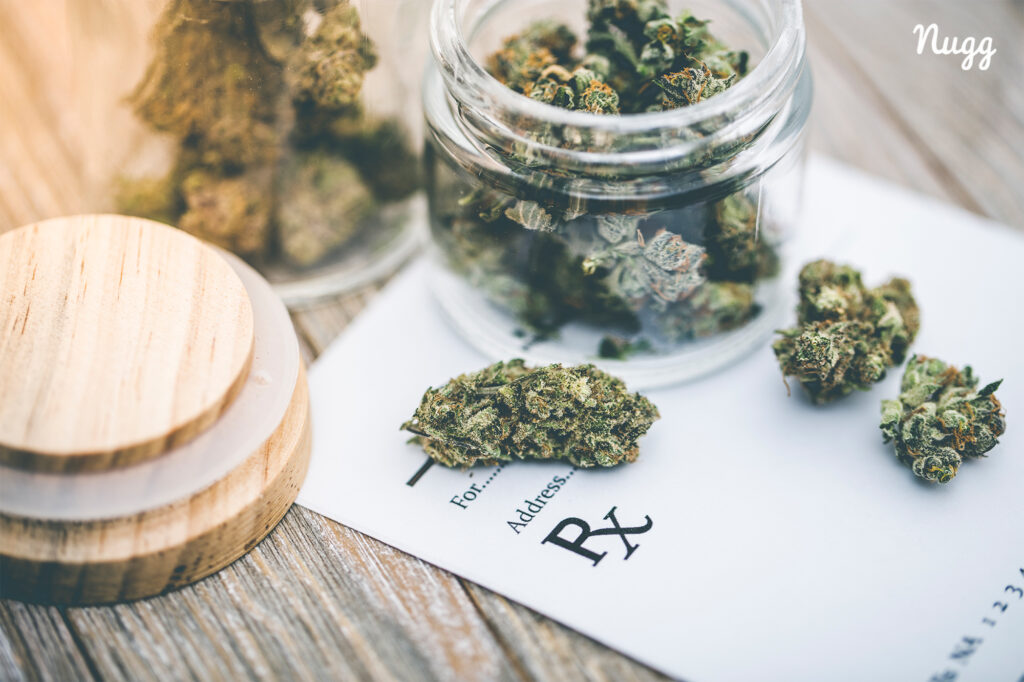
Eating disorders are a category of diagnoses that involve an unhealthy relationship with food. There are a variety of eating disorders, including ARFID, bulimia, and anorexia. It is possible to have co-occurring eating disorders.
Diagnosing eating disorders can be complicated, as they exist in a variety of degrees and may not look the same from one individual to the next. Eating disorders are most commonly treated with psychotherapy or medications like antidepressants.
It’s estimated that 9% of individuals in the US will experience an eating disorder at some point during their lifetime, and women are twice as likely to experience an eating disorder compared to men. This is likely due to various factors, including societal imagery and a collective attitude towards food. It’s also important to remember that eating disorders can look different from one person to the next, and there isn’t just one way that someone can experience an eating disorder.
While eating disorders are most common in teens and early adults, they can develop at any point for any person, regardless of age and socioeconomic factors.
What Causes Eating Disorders?
Eating disorders are complex, and there isn’t one sole cause. To understand the root of an individual’s eating disorder, further medical and psychological investigation may be required. It’s important to remember that eating disorders can be incredibly individualized, and those with this condition may manifest signs and symptoms differently.
Possible eating disorder causes include:
- Genetics
- Body image issues
- Peer pressure
- A lack of positive coping skills
While eating disorders can occur in anyone, they are more common in women and typically appear during adolescence and young adulthood.
Eating Disorder Signs & Symptoms
There are a variety of eating disorders, and even the same eating disorder could look different from one person to the next. As such, symptoms may vary depending on the specific eating disorder and individual.
If you have an eating disorder, you may experience one or more of the following symptoms:
- Food restriction
- Induced vomiting
- Eating past feeling full
- Excessively exercising to change your body
- Obsessing about food
While these are some of the most common symptoms, there are many others you may experience. If you are concerned that you or a loved one may have an eating disorder, please contact your doctor to discuss your concerns and possible treatment.
Can Cannabis Help Alleviate Symptoms of Eating Disorders?

Because of the various types of eating disorders that exist, cannabis may help in different ways based on the specific condition an individual has.
In the case of bulimia and anorexia, there is a strong psychological component, and individuals often experience depression alongside their bulimia or anorexia. Cannabis has been suggested to be involved in boosting mood. Still, more research is needed on dosing and cannabinoid ratio to understand how cannabis could be used most effectively in any treatment for depression.1
However, research has also shown that individuals with anorexia may have a higher density of CB1 receptors and endocannabinoid levels. The researchers noted that patients with anorexia experienced increased weight gain and improved overall symptoms using minimal amounts (2mg) of the synthetic THC, dronabinol. In addition, CBD has demonstrated promise for anxiety disorders, which may aid in relieving the symptoms of anxiety that occur in patients with anorexia.2
For an eating disorder like avoidant restrictive food intake disorder, or ARFID, which is characterized by a lack of appetite and interest in food, cannabis may help in a significant way.
Specific cultivars of high-THC cannabis have been well-recognized to help induce an increase in appetite. This action occurs due to the ability of THC to boost the production of ghrelin in the brain, which in turn signals the hypothalamus to increase appetite. CB1 receptors in the hypothalamus are also suggested to be involved in the regulation of food-seeking behaviors, with their activation promoting appetite stimulation.3
Other terpenes found in cannabis, like linalool, have also been suggested to help induce appetite stimulation, while others, like humulene, have had the opposite effect, suppressing appetite.4,5
Legality and Doctor’s Recommendation
To determine if your state considers eating disorders to be a qualifying condition for medical marijuana, check out our Laws & Regulations section for the medical cannabis rules for your state.
If you find that your state recognizes eating disorders or their symptoms as a qualifying medical condition, you can seek a doctor’s recommendation to get your medical cannabis card in your state.
How NuggMD Can Help

NuggMD is the nation's leading medical marijuana technology platform, serving patients in over half the United States. We’ve connected over 1,300,000 patients with their new medical marijuana doctors face-to-face via our state-of-the-art telemedicine platform.
We believe that every human being has the right to explore the benefits of medical cannabis and are fully committed to helping each patient explore all of their options in their journey to wellness. For further information on whether you qualify for medical cannabis, select your state.
Resources
- Feingold D, Weinstein A. Cannabis and Depression. Cannabinoids and Neuropsychiatric Disorders. 2020;1264:67-80. doi:https://doi.org/10.1007/978-3-030-57369-0_5 ↩︎
- Rogers CI, Pacanowski CR. The relationship between cannabis and anorexia nervosa: a scoping review. Journal of eating disorders. 2023;11(1). doi:https://doi.org/10.1186/s40337-023-00887-9 ↩︎
- Farokhnia M, McDiarmid GR, Newmeyer MN, et al. Effects of oral, smoked, and vaporized cannabis on endocrine pathways related to appetite and metabolism: a randomized, double-blind, placebo-controlled, human laboratory study. Translational Psychiatry. 2020;10(1). doi:https://doi.org/10.1038/s41398-020-0756-3 ↩︎
- Nguyen NPK, Tran KN, Nguyen LTH, Shin HM, Yang IJ. Effects of Essential Oils and Fragrant Compounds on Appetite: A Systematic Review. Int J Mol Sci. 2023;24(9):7962. Published 2023 Apr 27. doi:10.3390/ijms24097962 ↩︎
- Hanuš LO, Hod Y; Terpenes/Terpenoids in Cannabis: Are They Important?. Med Cannabis Cannabinoids. 2020; 3 (1): 25–60. https://doi.org/10.1159/000509733 ↩︎
The information in this article and any included images or charts are for educational purposes only. This information is neither a substitute for, nor does it replace, professional legal advice or medical advice, diagnosis, or treatment. If you have any concerns or questions about laws, regulations, or your health, you should always consult with an attorney, physician or other licensed professional.

